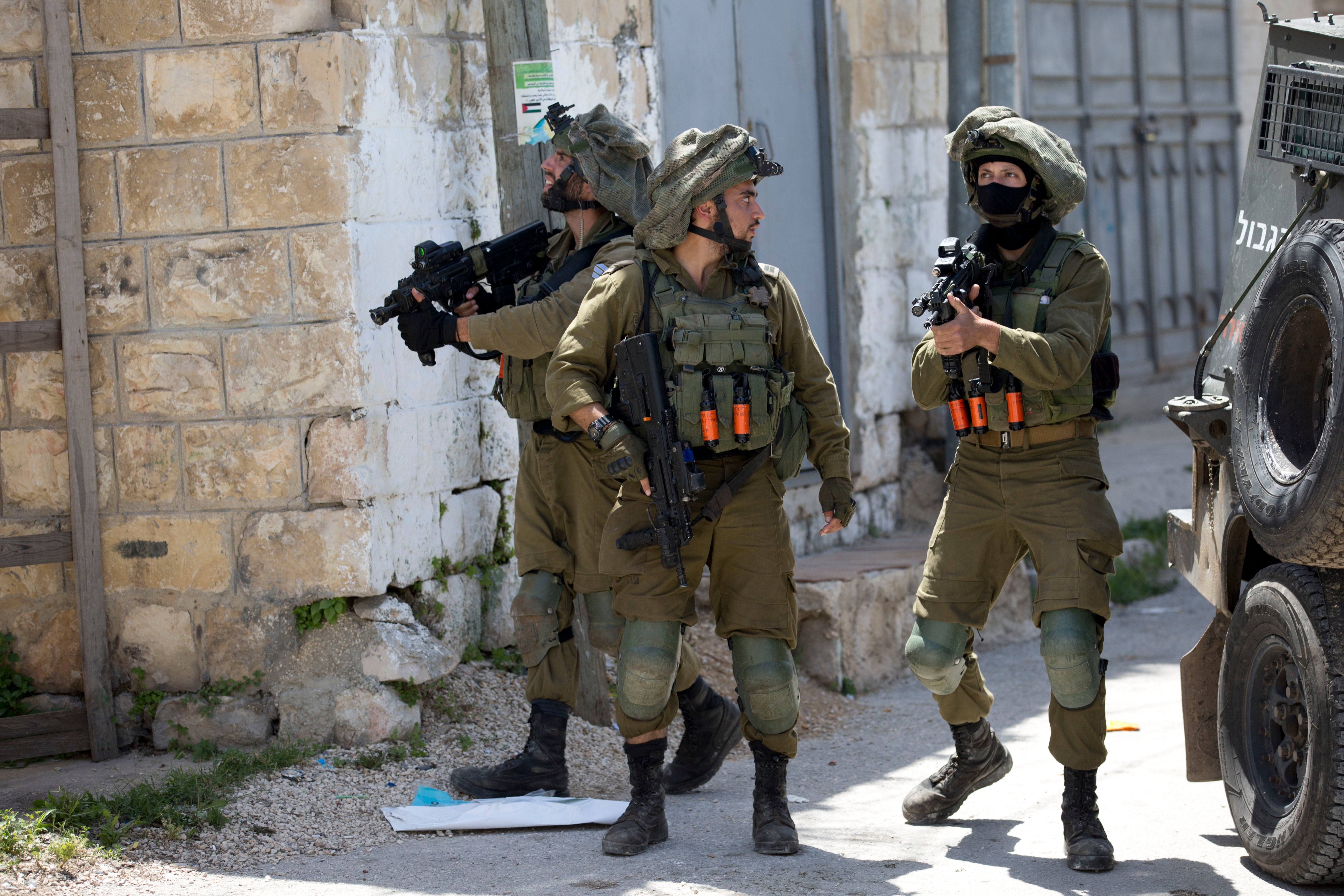Israel to halt nighttime 'mapping' of Palestinian homes
The Israeli military says it is reining in a controversial practice of conducting late-night raids of Palestinian homes in the West Bank that are aimed at gathering information about the houses and their inhabitants

Your support helps us to tell the story
From reproductive rights to climate change to Big Tech, The Independent is on the ground when the story is developing. Whether it's investigating the financials of Elon Musk's pro-Trump PAC or producing our latest documentary, 'The A Word', which shines a light on the American women fighting for reproductive rights, we know how important it is to parse out the facts from the messaging.
At such a critical moment in US history, we need reporters on the ground. Your donation allows us to keep sending journalists to speak to both sides of the story.
The Independent is trusted by Americans across the entire political spectrum. And unlike many other quality news outlets, we choose not to lock Americans out of our reporting and analysis with paywalls. We believe quality journalism should be available to everyone, paid for by those who can afford it.
Your support makes all the difference.The Israeli military says it is reining in a controversial practice of conducting late-night raids of Palestinian homes in the West Bank aimed at gathering information about the houses and their inhabitants.
The military has in the past defended the practice, known as “intelligence mapping,” as a necessary measure to counter militant groups. But human rights groups say the policy served only to intimidate civilians.
Under the practice, soldiers would rouse families in the middle of the night to document the dimensions and inhabitants of homes in the occupied territory. Rights groups said the raids, conducted in homes where no one was suspected of illegal activities, served no strategic purpose and caused deep psychological trauma.
The change in policy came half a year after Yesh Din, Physicians for Human Rights Israel, and Breaking the Silence, three Israeli activist groups, published a report on what they described as “arbitrary invasions” of private Palestinian homes. They said the practice “effectively serves as a means to oppress and intimidate the Palestinian population and increase control over it.”
Israel captured the West Bank in the 1967 Mideast war. While the internationally recognized Palestinian Authority administers autonomous zones within the territory, Israel retains overall control and frequently conducts military raids even in Palestinian-controlled areas.
Today, almost 3 million Palestinians live in the West Bank, according to official Palestinian figures, alongside nearly half a million Israeli settlers.
The Palestinians seek the entire West Bank as the heartland of an independent state, along with the Gaza Strip and east Jerusalem Israel says the West Bank is disputed territory whose fate should be resolved through negotiations. Most of the international community considers the West Bank occupied territory and Israeli settlements to be illegal and obstacles to peace.
In a letter to Yesh Din on Tuesday, the army said its raids “were not random operations" and were "intended for an operational-intelligence purpose.” It said there were strict guidelines for such operations “in order to minimize the damage and disturbance to the residents’ quality of life.”
Nonetheless, it said the raids would be halted “except in exceptional circumstances.”
The Israeli military confirmed the policy change but did not immediately respond to requests for further comment.
Yesh Din executive director Lior Amihai called the military's decision “very significant.”
“Home invasions are inherent to the apartheid regime in place in the West Bank and we will continue to expose and challenge this and other practices until human rights are respected for all,” he said.
Breaking the Silence Executive Director Avner Gvaryahu said that it was “an important outcome” of the groups' report, “but fundamentally this is not going to bring an end to the occupation or (end) harm to Palestinians.”
The announcement came less than a month after widespread unrest in the West Bank, east Jerusalem, and within Israeli cities during May’s 11-day war between the Israeli military and Hamas militants in the Gaza Strip. The conflict erupted after Hamas launched rockets at Israeli cities following weeks of mounting tensions and violent clashes between Israeli police and Palestinian protesters in the contested city of Jerusalem.